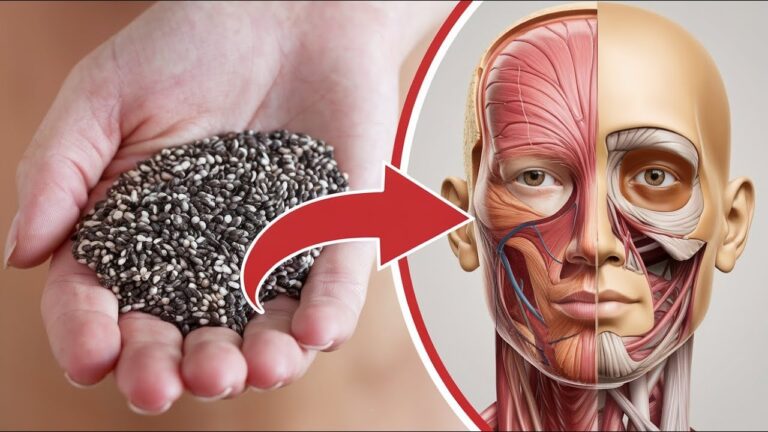Chia seeds are often hailed as a superfood, but what actually happens to your body when you start eating them daily? While chia seeds offer numerous health benefits, there are also some potential downsides if consumed improperly. Let’s explore the good and the bad of incorporating chia seeds into your diet.
What Happens to Your Body (The Benefits)
- Improved Digestion
- Chia seeds are high in fiber, which promotes regular bowel movements and supports gut health. Just one ounce (28 grams) provides about 11 grams of fiber!
- Increased Energy Levels
- Rich in complex carbs and protein, chia seeds provide a steady source of energy without blood sugar spikes.
- Better Heart Health
- Loaded with omega-3 fatty acids, chia seeds can help lower bad cholesterol (LDL) and triglycerides, reducing the risk of heart disease.
- Weight Management
- Chia seeds absorb water and expand in your stomach, helping you feel fuller for longer and reducing overeating.
- Stronger Bones
- They’re an excellent source of calcium, magnesium, and phosphorus, essential minerals for bone health.
- Improved Blood Sugar Control
- The high fiber content helps slow the absorption of sugar, stabilizing blood sugar levels.
- Reduced Inflammation
- Antioxidants like quercetin in chia seeds combat inflammation and protect against chronic diseases.
- Enhanced Skin and Hair Health
- The omega-3s, protein, and antioxidants support healthy, glowing skin and stronger hair.
What Could Go Wrong? (The Potential Downsides)
- Digestive Discomfort
- Eating too many chia seeds at once can cause bloating, gas, or constipation due to their high fiber content.
- To avoid this, start with small amounts (1–2 teaspoons) and drink plenty of water.
- Choking Hazard
- Dry chia seeds absorb water and swell. If not soaked properly, they can expand in your throat and pose a choking risk. Always soak chia seeds in water, milk, or another liquid for at least 10–15 minutes before consuming.
- Allergic Reactions
- While rare, some people may be allergic to chia seeds. Symptoms include rashes, itching, or difficulty breathing. If you experience these, discontinue use and consult a doctor.
- Medication Interactions
- Chia seeds may affect blood-thinning or blood-pressure-lowering medications. If you’re on these medications, consult your healthcare provider before eating chia seeds regularly.
How to Incorporate Chia Seeds Safely
- Daily Amount: Stick to 1–2 tablespoons a day (about 20–30 grams).
- How to Use Them:
- Soak them in water, milk, or juice for chia pudding.
- Add to smoothies, oatmeal, or yogurt.
- Sprinkle on salads or toast for extra crunch.
Is It BAD to Eat Chia Seeds Every Day?
When eaten in moderation and prepared properly, chia seeds are not bad for you—in fact, they’re incredibly beneficial! However, consuming too much or not preparing them correctly can lead to discomfort or potential risks.
Start slowly, stay hydrated, and enjoy the incredible benefits of chia seeds while avoiding the pitfalls!
